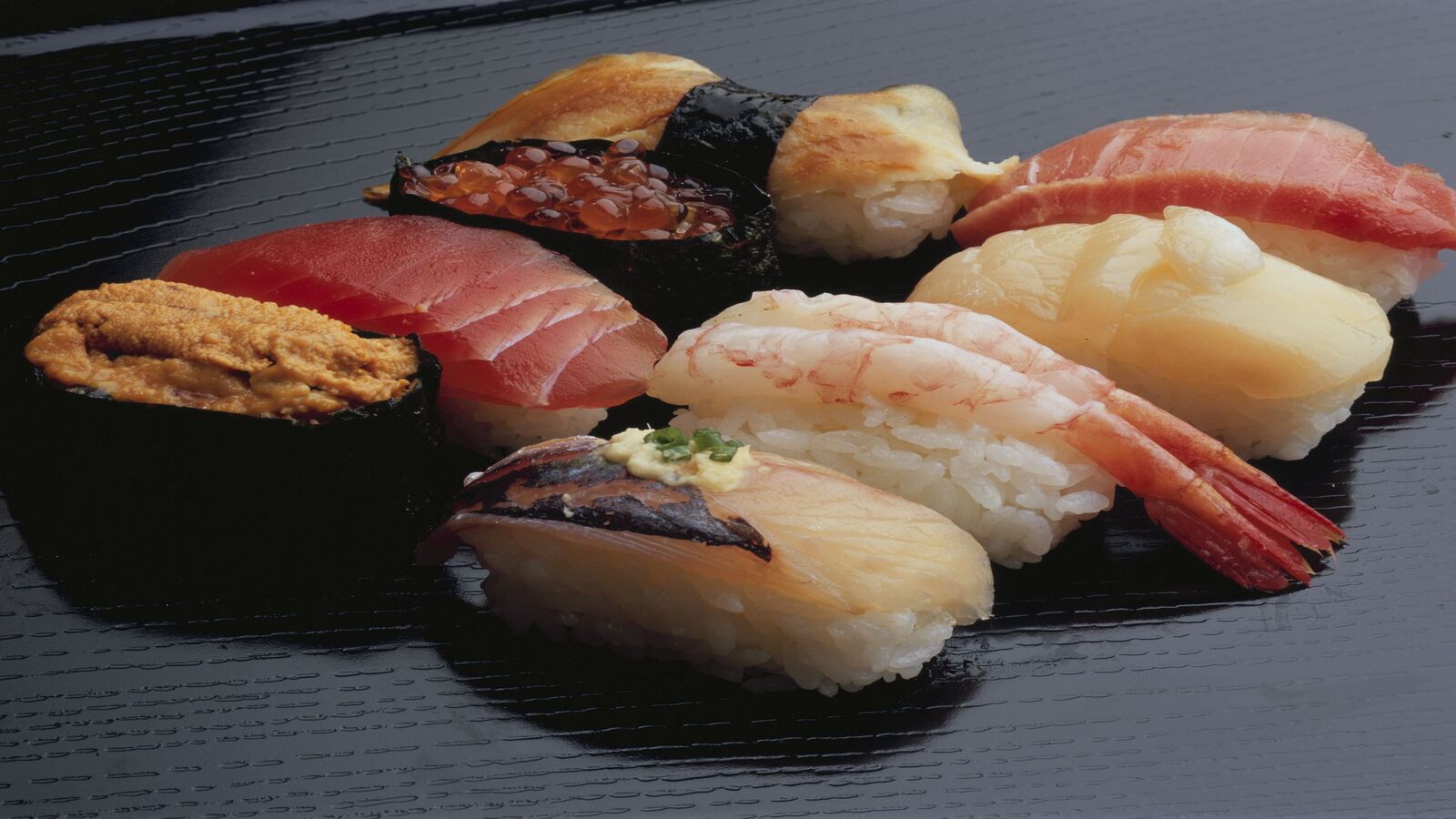
When it comes to enjoying a delicious sushi meal, nigiri is a popular choice. This traditional Japanese dish consists of a small mound of sushi rice topped with a slice of raw or cooked fish, seafood, or other ingredients. Nigiri offers a perfect combination of flavors, textures, and nutritional benefits that make it a delightful option for sushi lovers.
In this article, we will delve into 11 nigiri nutrition facts that will help you understand the health benefits this exquisite dish can offer. From the omega-3 fatty acids found in fatty fish nigiri to the vitamins and minerals present in various toppings, we will explore how nigiri can be a nutritious and tasty addition to your diet. So, let’s dive in and discover what makes nigiri not only a culinary delight but also a nourishing choice!
Key Takeaways:
- Nigiri sushi is a healthy choice, packed with protein, omega-3 fatty acids, and essential vitamins. It’s low in calories and saturated fat, making it a satisfying and nutritious option for sushi lovers.
- Nigiri sushi is a gluten-free, low-calorie option that provides essential minerals, antioxidants, and amino acids. It supports metabolism, muscle repair, and overall well-being, making it a flavorful and nutritious choice for sushi enthusiasts.
High in Protein
Nigiri sushi is packed with protein, making it a great choice for those looking to meet their daily protein needs. The fish or seafood topping provides a good source of lean protein, essential for muscle repair and growth.
Rich in Omega-3 Fatty Acids
Many types of fish used in nigiri, such as salmon and tuna, are rich in omega-3 fatty acids. These essential fats promote heart health, reduce inflammation, and support brain function.
Low in Calories
Compared to other sushi varieties, nigiri is relatively low in calories. The combination of lean protein and a small amount of rice makes it a satisfying, yet calorie-conscious choice.
Good Source of Minerals
Nigiri sushi provides various essential minerals like calcium, iron, and zinc. These minerals play a vital role in maintaining overall health, supporting bone strength, and boosting the immune system.
No Added Sugar
Nigiri sushi is naturally free of added sugars, making it a healthier alternative to many processed foods that are high in hidden sugars. This makes it a suitable option for those who are watching their sugar intake.
Contains Essential Vitamins
The fish or seafood in nigiri contains vitamins such as vitamin D, vitamin B12, and vitamin A. These vitamins contribute to various bodily functions, including immune support, energy production, and maintaining healthy skin and eyes.
Rich in Antioxidants
Certain types of fish, like salmon and mackerel, used in nigiri are packed with antioxidants. These antioxidants help protect the body against free radicals, reducing the risk of chronic diseases and promoting overall well-being.
Low in Saturated Fat
Nigiri sushi is generally low in saturated fat, which is known to contribute to heart disease. Choosing nigiri with lean fish options can be a healthier choice for those watching their saturated fat intake.
Gluten-Free Option
For individuals with gluten sensitivities or celiac disease, nigiri sushi can be a safe and delicious option. As it excludes the use of soy sauce and other gluten-containing ingredients, it allows for a gluten-free dining experience.
Boosts Metabolism
The combination of protein and healthy fats found in nigiri can help boost the body’s metabolism. Nigiri sushi can be a satisfying and nutrient-dense meal choice that supports weight management and overall metabolic function.
Provides Essential Amino Acids
Nigiri sushi contains essential amino acids that are important for the body’s growth and repair. These amino acids are necessary for building and maintaining muscles, as well as supporting various physiological processes.
In conclusion, enjoying nigiri sushi can be a flavorful and nutritious option. Its combination of lean protein, essential fats, and essential nutrients makes it a well-rounded choice for sushi lovers. So next time you’re craving sushi, consider indulging in these 11 nigiri nutrition facts to satisfy both your taste buds and your nutritional needs.
Conclusion
In conclusion, Nigiri is not only a flavorful and delicious sushi option, but it also offers several nutritional benefits. With its combination of fresh fish or seafood and sticky rice, Nigiri provides a good source of protein and essential omega-3 fatty acids. Additionally, it contains important vitamins and minerals like vitamin D, iodine, and selenium.
As with any food, it is important to enjoy Nigiri in moderation and consider the overall balance of your diet. Pairing it with a variety of other sushi options, such as sashimi and rolls, can provide a well-rounded meal that is both satisfying and nutritious.
So the next time you’re craving sushi, consider ordering some Nigiri and indulge in its delectable flavors while reaping its health benefits!
FAQs
1. Is Nigiri sushi high in calories?
Nigiri sushi can vary in calories depending on the type of fish or seafood used. Generally, it is a moderate-calorie option compared to other sushi varieties. To make it healthier, you can opt for lean fish toppings like tuna or salmon.
2. Does Nigiri contain a lot of carbohydrates?
Nigiri sushi does contain carbohydrates, mainly from the sticky rice used as its base. However, the amount of carbohydrates can be controlled by portion size. If you are watching your carbohydrate intake, consider limiting the number of Nigiri you consume.
3. Is Nigiri a good source of protein?
Yes, Nigiri sushi is a good source of protein. It is typically topped with fish or seafood, which are excellent sources of high-quality protein. Protein is essential for muscle growth and repair, and Nigiri can contribute to your daily protein requirements.
4. Can I eat Nigiri sushi if I am on a gluten-free diet?
Nigiri sushi is generally gluten-free as long as the soy sauce used for dipping is gluten-free. However, it’s important to check the specific ingredients and preparation methods used by the sushi restaurant to ensure there is no cross-contamination with gluten-containing ingredients.
5. Is Nigiri sushi safe to eat during pregnancy?
As long as the fish or seafood used for Nigiri sushi is fresh and properly sourced, it is safe for pregnant women to consume. However, it is advised to avoid high-mercury fish like swordfish, shark, and king mackerel. Consult with your healthcare provider for any specific concerns or recommendations regarding sushi consumption during pregnancy.
Was this page helpful?
Our commitment to delivering trustworthy and engaging content is at the heart of what we do. Each fact on our site is contributed by real users like you, bringing a wealth of diverse insights and information. To ensure the highest standards of accuracy and reliability, our dedicated editors meticulously review each submission. This process guarantees that the facts we share are not only fascinating but also credible. Trust in our commitment to quality and authenticity as you explore and learn with us.


